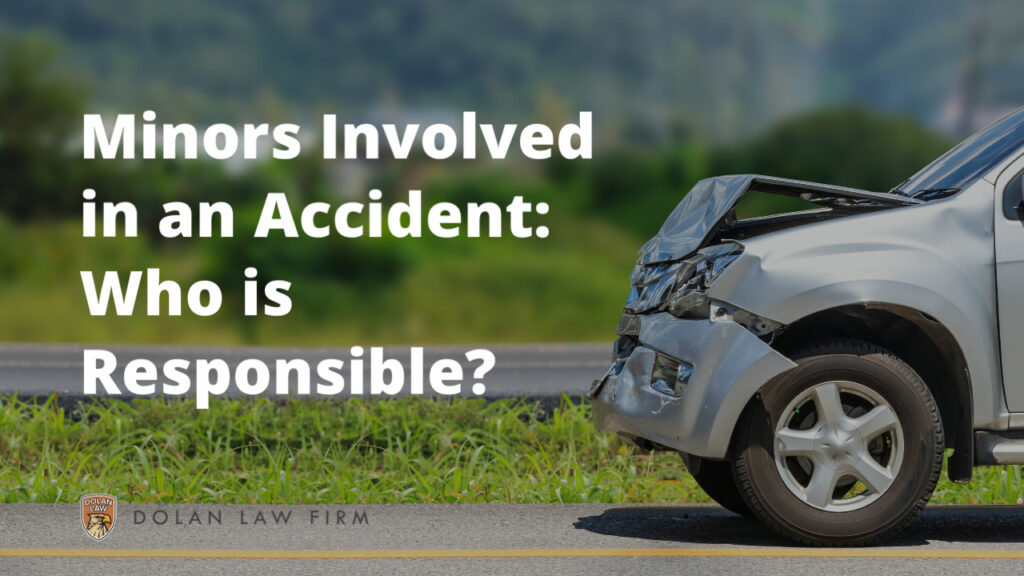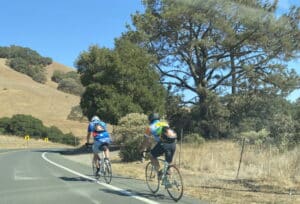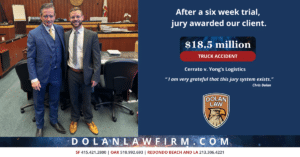Written By: Christopher Dolan and Jeremy Jessup
This week’s question comes from anonymous from San Carlos who asks: I recently read about the heartbreaking story involving the couple from San Carlos who were killed in a motor vehicle collision in Redwood City. Based upon the news articles, the at fault driver may have been a 17-year-old kid, with friends in the car. If the teenager is in fact at fault, can their parents be held accountable? What about the friends?
You are absolutely correct; this was a tragic and heartbreaking event that did not have to happen. Those children should still have both of their parents. And the answer to your first question, is yes, the parents can be held liable for the acts of a 17-year-old. In California, the parent or legal guardian of a minor who is under the age of 18, must sign a driver’s license application for said minor to receive their license. As a result of signing that application, the parents or legal guardian are bound by Section 17707 of the vehicle code, which essentially spells out civil liability for that parent or guardian if the minor causes a collision.
That code sections says:
“Any civil liability of a minor arising out of his driving a motor vehicle…is hereby imposed upon the person who signed and verified the application of the minor for a license, and the person shall be jointly and severally liable with the minor for any damages proximately resulting from the negligent or wrongful act or omission of the minor in driving a motor vehicle.”
Thus, this code section makes a parent or legal guardian jointly liable for “any damages proximately resulting” from the accident. That includes compensation for non-economic losses like pain and suffering and those associated with a wrongful death matter. Given the severity of this collision, it could add up to a significant amount.
With regards to the friends, this is a bit more complicated and depends on the facts. But the short answer is yes. A passenger can be held liable for a collision if they undertook very specific acts. One would be operating the vehicle as a passenger. This would include controlling the steering wheel, the brakes the gear shift or any other part of the vehicle that would affect the maneuvering of the vehicle. Another means in which a passenger could be held liable, is if they incapacitated and/or distracted the driver. This could occur by blocking their vision, bumping them, or distracting them by whatever means. Finally, a passenger may be held liable if they “encouraged” the driver. Encouragement can take many forms. Some classic examples include encouraging an intoxicated driver to drive and a semi-recent example would be a passenger encouraging the driver to drive faster.
In the case of Navarrete v. Meyer (2015) 237 Cal.App.4th 1276, Hayley Meyer was a passenger in a vehicle being driven by her friend, Brandon Coleman. While driving to their destination, she told Coleman to turn on Skyview Drive, a street she knew dips that could make a vehicle become airborne. She also knew the speed limit was 25-mph. According to the facts, Hayley told Coleman about the dips and that it would be fun to drive at a high rate of speed on them, and he should do it. Coleman turned onto Skyview Drive, and she told him to “go faster.” He did. Unfortunately, Coleman sped up, went airborne, lost control of the car, and crashed into a parked vehicle, killing a father of three.
The court was presented with the issue of whether or not Haley Meyer could be sued for negligence, even though she was not actually the driver of the car. The Court ruled that she could.
If the teen driver is at fault and it can be argued that the two passengers, believed to be 15 years old, encouraged the teen to drive fast, they too could be held accountable. The next logical question is, could their parents?
This one is more complicated for a couple of reasons. First, if the passengers were in fact 15-years old or did not possess a driver’s license/learners permit, then we have no parent or legal guardian signing off on their license. In addition, section 17707 specifically hinges liability on the parent/guardian for “civil liability of a minor arising out of his driving a motor vehicle”. In this case, the passengers were not “driving” the vehicle.
However, this type of liability may be covered by California Civil Code section 1714.1, which states:
“Any act of willful misconduct of a minor that results in injury or death to another person, or in any injury to the property of another, shall be imputed to the parent or guardian having custody and control of the minor for all purposes of civil damages.”
However, the statute puts a few limitations on the amount the parent or legal guardian can be liable for, which is $25,000.00 (this amount is subject to cost-of-living adjustments every two years. The most recent figure appears to be $47,100.00). In addition, it does not allow compensation for pain and suffering, only economic damages, such as medical expenses.
Regardless of who may be held liable, as we head into the holiday season, it is a good time to remind all of your loved ones to drive attentively and carefully so that we might decrease the number of tragic roadway collisions and not have to worry about questions such as these.










